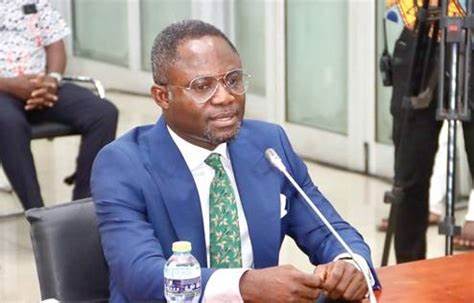The Ghanaian Parliament has summoned the Minister of Health, Kwabena Mintah Akandoh, to provide a comprehensive briefing on the escalating cholera and cerebrospinal meningitis outbreaks within the country. This urgent call to action follows a compelling appeal by Minority Leader and Member of Parliament for Effutu, Alexander Afenyo-Markin, who underscored the gravity of the situation and the pressing need for government intervention. Afenyo-Markin highlighted the alarming statistics emanating from his constituency, reporting over 400 confirmed cholera cases and three resulting fatalities. Coupled with this, the Upper West Region is grappling with a cerebrospinal meningitis outbreak, which has tragically claimed 14 lives. These concurrent health crises necessitate swift and decisive action to prevent further spread and loss of life. The First Deputy Speaker, Bernard Ahiafor, responded affirmatively to the Minority Leader’s request, directing the Health Minister to appear before Parliament within a week to address the concerns raised.
Afenyo-Markin’s appeal extended beyond a mere briefing, emphasizing the critical need for immediate resource allocation to support overwhelmed healthcare facilities in the affected areas. He specifically pointed to the strain on the Winneba Municipal Hospital, the University of Education, Winneba (UEW) Clinic, and the Winneba Health Centre, all located within his Effutu constituency. These institutions, currently serving as the primary points of care for cholera patients, are facing mounting pressure due to the influx of cases, many originating from the densely populated fishing communities along the coast. The MP stressed the urgency of deploying additional medical personnel and resources to these facilities to bolster their capacity to effectively manage the outbreak and prevent further fatalities. This direct appeal for central government intervention reflects the critical nature of the situation and the need for coordinated action.
The cholera outbreak, concentrated in the Effutu Municipality, poses a significant threat to public health, particularly in the coastal communities. The reported 412 cases highlight the rapid spread of the disease and underscore the need for prompt and effective containment measures. Cholera, a waterborne illness, is often linked to inadequate sanitation and contaminated water sources, factors that may be prevalent in these communities. The overcrowding and limited access to clean water and sanitation in these areas create fertile ground for the spread of the disease, making rapid intervention crucial to preventing further transmission. The reported fatalities underscore the potentially lethal nature of the disease, particularly when access to timely medical treatment is limited. The strain on local healthcare facilities further exacerbates the situation, emphasizing the need for additional resources and personnel to manage the escalating caseload.
Simultaneously, the cerebrospinal meningitis outbreak in the Upper West Region presents another serious public health challenge demanding immediate attention. With 14 reported deaths, the severity of this outbreak is evident. Cerebrospinal meningitis, an infection of the membranes surrounding the brain and spinal cord, can be fatal if not treated promptly. The Upper West Region, often characterized by limited healthcare infrastructure and resources, may face challenges in effectively containing the outbreak and providing adequate treatment to those affected. The geographic distance from major medical centers can further complicate access to specialized care, contributing to the higher mortality rate. This outbreak necessitates a coordinated response, including targeted vaccination campaigns, improved access to diagnostic testing, and provision of essential medications to control the spread of the disease and minimize fatalities.
The combined impact of these two outbreaks underscores the fragility of Ghana’s health system and the need for proactive measures to strengthen its capacity to respond to such emergencies. The Minister of Health’s appearance before Parliament is crucial for providing transparency and accountability in the government’s response to these crises. The Parliament’s intervention signifies the seriousness with which these outbreaks are being treated and provides a platform for detailed discussion on the necessary interventions. The Minister’s briefing should encompass a comprehensive strategy for containing both outbreaks, including resource allocation, public awareness campaigns, and enhanced surveillance measures. It should also address the long-term implications of these outbreaks and the steps needed to prevent future occurrences.
This parliamentary summons represents a critical juncture in the ongoing battle against these infectious diseases. The Minister’s briefing will not only provide an update on the current situation but also serve as a crucial opportunity to outline a comprehensive plan of action to address these immediate health crises and strengthen the nation’s preparedness for future outbreaks. The prompt and decisive actions taken in response to this summons will be instrumental in safeguarding the health and well-being of the people of Ghana and building a more resilient health system. The government’s response must not only address the immediate needs of the affected communities but also implement sustainable solutions to address the underlying factors contributing to these outbreaks. This includes improving sanitation infrastructure, ensuring access to clean water, and strengthening disease surveillance mechanisms to facilitate early detection and rapid response to future health threats.














